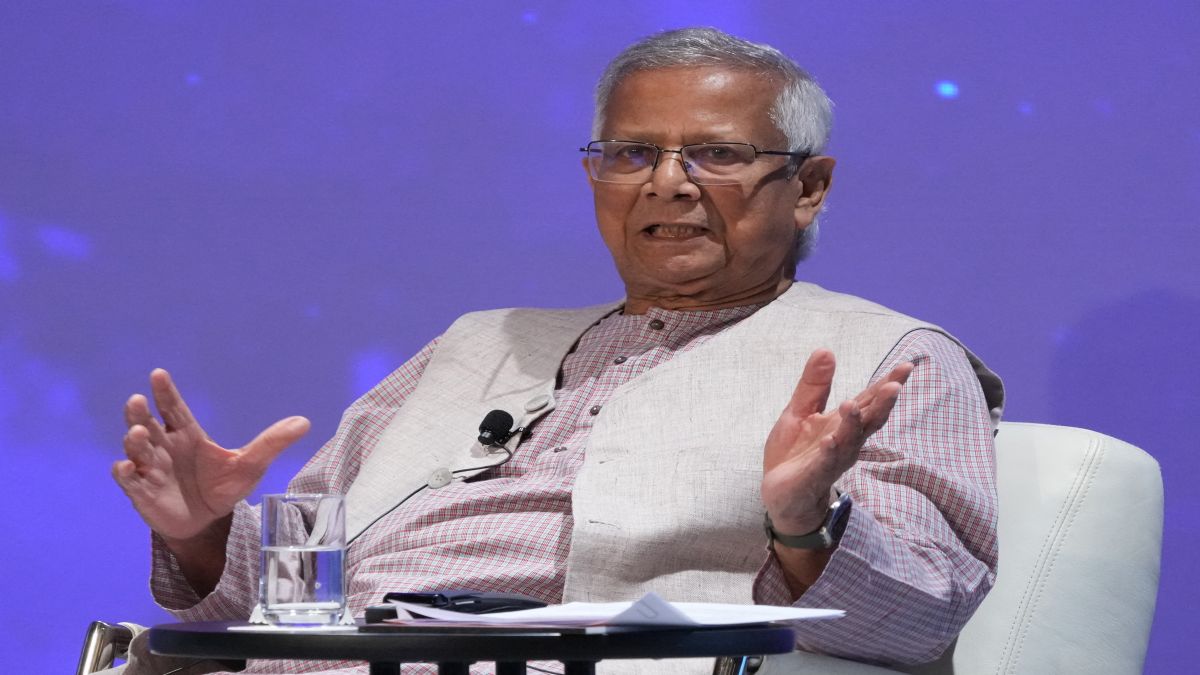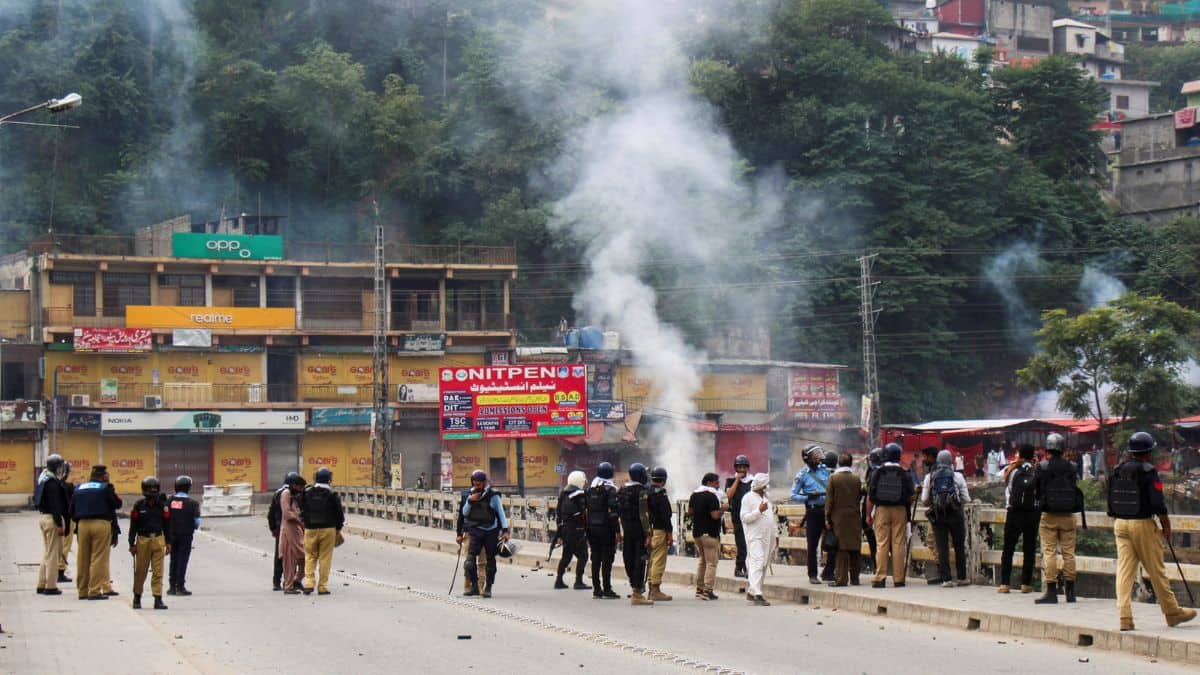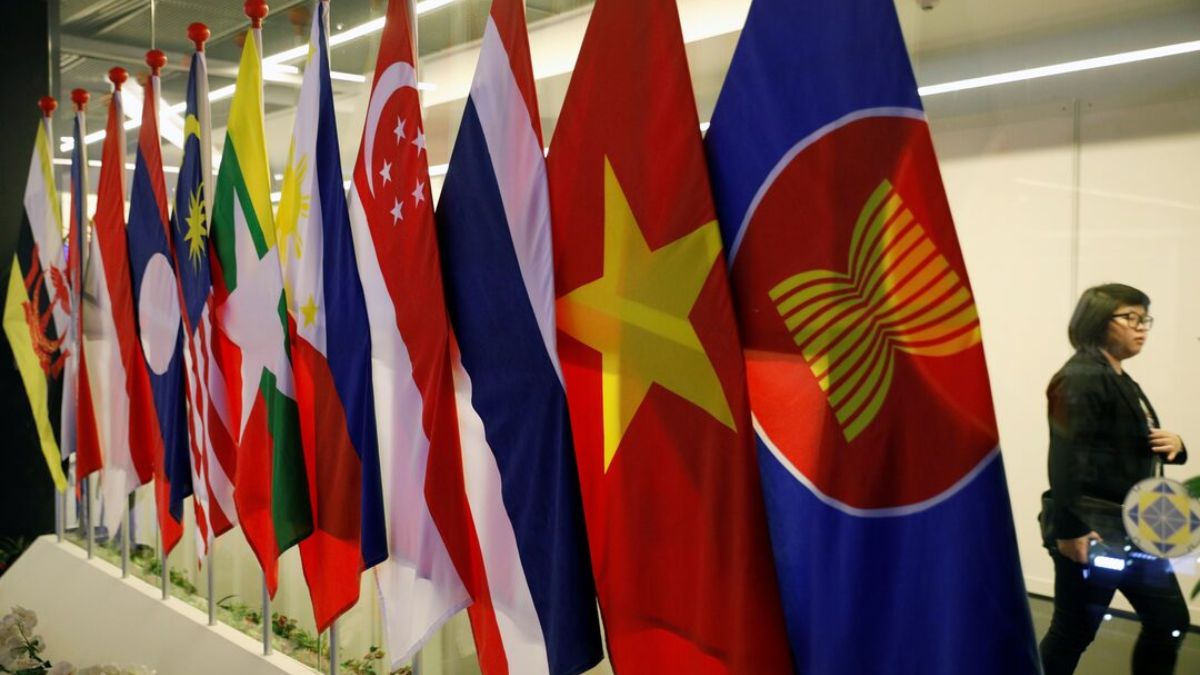A silent coup is unfolding in Bangladesh. Behind the façade of governance, an alliance of Islamist networks, foreign intelligence agencies, and radical ideologues is methodically dismantling the country’s most secular and stabilising institution — the armed forces. The orchestrator of this quiet purge is Muhammad Yunus, once celebrated as a Nobel laureate, now at the helm of an increasingly Islamist-leaning regime that threatens to upend decades of democratic progress. At stake is not merely Bangladesh’s political future but the security architecture of South and Southeast Asia.
A Calculated Assault on the Military
The Yunus regime has weaponised its so-called “International Crimes Tribunal” (ICT), which on October 22, 2025, sent 15 serving military officers to jail to face trial on charges of enforced disappearances, murders, and custodial tortures during the then Prime Minister Sheikh Hasina’s regime.
This tribunal, which bears no relation to the International Criminal Court (ICC), has become a political instrument designed to intimidate, discredit, and ultimately dismantle Bangladesh’s military establishment. Intelligence insiders warn that the list could soon expand to over 150 officers, possibly including the current chiefs of the Army, Navy, and Air Force.
The move has triggered serious unrest within the ranks. Officers view these charges as a direct attack on the institution’s honour and independence. According to sources, Army Chief General Waker Uz Zaman faces growing internal pressure to act decisively against this political persecution, as frustration spreads among both serving and retired personnel.
Impact Shorts
More ShortsThe ultimate goal, analysts believe, is to replace the Bangladesh military with an ideologically driven “Islamic Revolutionary Army (IRA)” — a paramilitary structure akin to Iran’s IRGC, loyal not to the constitution but to an Islamist doctrine and its political benefactors.
If Islamist forces can manipulate or dismantle Bangladesh’s military — turning it into a politicised or sectarian instrument — they will not only dominate domestic politics but export violence beyond Bangladesh’s borders.
Foreign Enablers and Ideological Alignment
The conspiracy does not exist in a vacuum. Multiple intelligence sources suggest active involvement of Pakistan’s ISI and Turkey’s National Intelligence Organisation (MIT) in guiding and financing the transformation of Bangladesh’s security landscape.
The ISI’s longstanding ties with Bangladesh’s Jamaat-e-Islami and other Islamist factions are well documented. Now, under President Recep Tayyip Erdoğan, Turkey’s Islamist activism — blending neo-Ottoman ambition with pan-Islamic ideology — has entered the equation. Both countries appear to be coordinating their influence campaigns, using financial, religious, and educational fronts to cultivate sympathisers within Bangladesh’s bureaucracy and political class.
Within Rohingya refugee camps, Saudi- and Qatari-funded “humanitarian” organisations are allegedly recruiting militants under the guise of charity. These camps, already rife with arms trafficking and extremist preaching, have become hotbeds for jihadist mobilisation aimed at destabilising India’s Northeast and Myanmar’s Rakhine State. Bangladesh, once a bulwark against regional terrorism, risks becoming its epicentre.
The current drift in the policy of the Trump administration — in ignoring Islamist advances in Bangladesh — risks repeating this error. Indeed, Erdoğan’s Turkey is allegedly offering financial and logistical backing to Islamist organisations in Bangladesh, further exacerbating the security threat.
An Alarming Political Declaration
Compounding this crisis, senior BNP leader Salauddin Ahmed has publicly branded members of the military and police who served under former Prime Minister Sheikh Hasina as “traitors”. In a social media post, he admitted that thousands of individuals — including soldiers, police officers, Hindus, and Awami League activists — were “executed by the People’s Court” during the violent July-August 2025 protests, especially between August 5 and August 30.
This shocking confession underscores how elements within the BNP and allied Islamist factions have aligned themselves with a campaign of terror and revenge. It also signals that these groups now consider the Bangladesh Armed Forces an adversary — not an ally — in their push for political dominance.
Eroding Secular Institutions
The current purge is part of a broader ideological realignment. The Directorate General of Forces Intelligence (DGFI), once celebrated for dismantling terrorist outfits such as HuJI-B, JMB, and ISIS-linked cells, is now under siege through defamation and legal warfare. The government’s narrative accuses DGFI officers of “human rights abuses” while simultaneously shielding Islamist extremists and their financial sponsors.
Inside Bangladesh, Yunus’s advisors are reportedly drafting plans to declare a “revolutionary government” that would suspend the existing constitution, allowing them to dismiss the President and military chiefs — mirroring the theocratic model of Iran. Under this framework, hundreds of officers could face swift trials and even death sentences under fabricated allegations of crimes against humanity or being branded as “traitors”.
Meanwhile, security around the U.S. Embassy in Dhaka has been significantly tightened amid intelligence warnings of a potential jihadist attack. Yet, Washington’s posture remains one of calculated silence — a dangerous echo of the 1980s, when U.S. reliance on Pakistan’s ISI to counter the Soviets in Afghanistan inadvertently gave birth to global jihadist networks.
Western Blindness, Regional Peril
Today, the United States risks repeating the same mistake by turning a blind eye to the Yunus regime’s Islamist realignment. Behind the Nobel Peace Prize halo, Dhaka’s quiet transformation into an Islamist hub continues unchecked.
Turkey and Pakistan have allegedly offered logistical and financial support to Islamist organisations, while Yunus’s government systematically erodes the institutional pillars that once safeguarded Bangladesh’s secular identity.
If this trajectory continues, Bangladesh could soon resemble a hybrid of Iran and Pakistan — a pseudo-democracy ruled by clerics, intelligence operatives, and militias.
Regional and Global Implications
A radicalised Bangladesh would profoundly reshape South Asia’s security balance. For India, it would open a new Islamist front along its eastern flank, undermining regional stability from the Bay of Bengal to the Himalayas. For China, the resulting vacuum could present both opportunities and risks — an unstable Bangladesh could become more dependent on Beijing, but ongoing unrest could disrupt Belt and Road initiatives across the region.
For ASEAN states, particularly Myanmar and Thailand, the spillover of radical networks and arms from the Rohingya corridor could ignite new waves of insurgency and human trafficking.
A Fragile Frontier
Bangladesh today stands at the edge of an ideological abyss. The erosion of its military is not merely a domestic purge — it is the opening act of a regional reconfiguration that could empower Islamist movements stretching from Istanbul to Jakarta.
The international community, especially India, the U.S., and ASEAN, must recognise this pattern before it solidifies. The lessons of Afghanistan, Pakistan, and Iran are unambiguous: silence in the face of Islamist militarisation leads inevitably to regional catastrophe.
Unless Bangladesh’s democratic and security institutions are defended, the world may soon confront a new Islamist axis anchored in Dhaka, destabilising the entire Indo-Pacific theatre.
_(The author is a journalist, writer and editor of the newspaper ‘Blitz’. He specialises in counterterrorism and regional geopolitics. (X: @Salah_Shoaib). The views expressed in the above piece are personal and solely those of the author. They do not necessarily reflect Firstpost’s views.)
_


)

)
)
)
)
)
)
)
)



